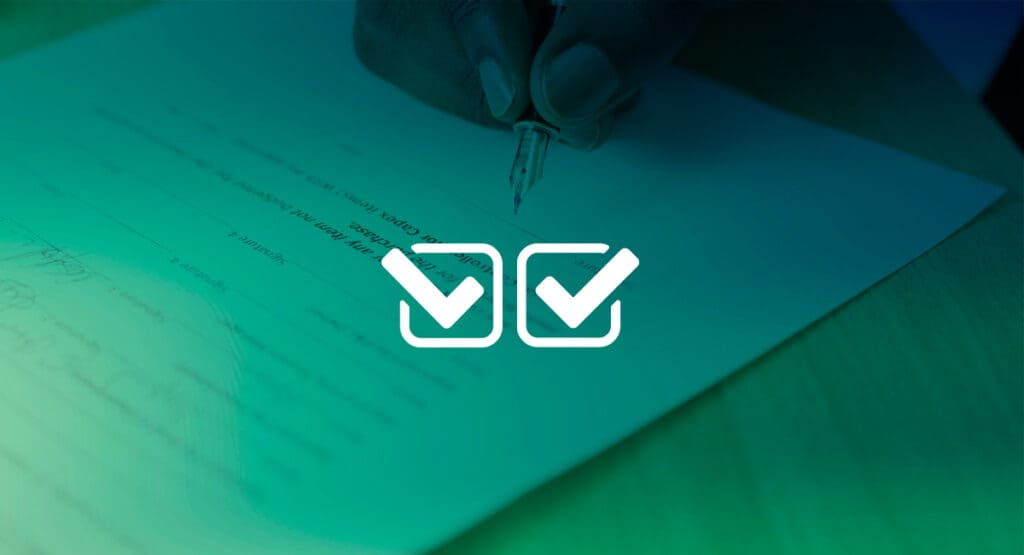A lot of activity takes place after you sign your new business energy deal, whether it is a renewal to your current supplier or a switch to a new supplier. Perhaps the most important stage is “lock-in”, whereby your supplier and your business enter a legal agreement for the supplier to purchase the energy needed to fulfil your deal.
Once this stage is reached, your agreement triggers the allocation of your consumption from the supplier’s inventory. At this point, the power or gas is reserved to be supplied to your business and the revenue generated from this sale is written into the supplier’s P&L.
If you used a Third Party Intermediary (TPI), the commercial agreement between the supplier and the TPI also becomes active and the TPI receives commission as per the signed contract.
At this stage, your contract is legally binding, as outlined in the terms and conditions of your supplier and, if applicable, your TPI partner.
Can I walk away from a contract I have signed?
If you have made a mistake or know your contract will not be fulfilled, you must ensure that you attempt to cancel your contract before it is accepted and “locked-in” by your supplier. After this stage it becomes far more complicated to be cancelled.
Finding a cheaper deal at another supplier after this date will not enable you to cancel a previous contract.
Why can’t I cancel a business energy deal after this point?
Signing an energy contract triggers the purchase of your gas or power by your suppler, incurring costs. If that contract does not go live, that means they cannot bill you for the energy purchased, incurring a significant loss to their business. Not all suppliers generate their own energy and many procure from the wholesale market; and your allocation of energy is purchased at the point of sale based on your agreement.
Understandably, suppliers will hold you accountable for the terms and conditions your business agreed to if your actions have incurred a loss for them.
This scenario is the equivalent to hiring a tradesperson to build your new home extension, then cancelling the order after they have procured the required building materials.
For your TPI, they are paid their commission from the supplier in different sums and proportions. If the contract does not go live, the TPI must repay that commission to the supplier, also incurring a loss.
What happens if my business energy deal does not go live?
If your deal does not go live, your supplier and TPI will investigate why this did not happen. As long as the contract was properly administered, you will be held to the terms and conditions on the contract you signed.
These terms could specify the payment of a fixed termination fee; a fee per unit of energy on the contract; or the equivalent revenue your supplier or TPI would have generated from the contract.
It is imperative that you understand what this penalty is and read your energy contract terms and conditions at point of sale.
Is there a cooling-off period for my business energy deal?
Unlike consumer contracts and domestic energy, there is no cooling-off period for business energy deals.
This is explicitly stated in the terms and conditions of non-domestic energy contracts. You can not change your mind about the contract without a likely financial penalty.
In general, businesses are expected to conduct appropriate due diligence when entering legal agreements, meaning you should not apply a consumer approach to the procurement of non-domestic contracts of any kind, including energy.
My contract is not yet live, does this matter?
Because the contract is binding as of the moment it is accepted, the length of your “go-live period” is not relevant. This period is the time between you signing your contract and its stated start date.
You cannot sign another contract whilst you await your live date.
What scenarios would make a business sign a duplicate contract?
Energy suppliers often deploy “win-back” teams to prevent customers leaving their supply. They are usually final attempts to retain supplies with attractive, short-term offers designed to tempt businesses.
Likewise, TPIs could convince customers to sign duplicate deals and gamble that their contract wins the race to live, causing losses to their competition. This is a great win for them, but not for their customer, who will be liable for losses from the supplier and TPI who lost out. There is an increasing movement amongst TPIs to take greater care to ensure customers have not already signed contracts when negotiating new deals, due to the damaging effects duplicate contracts can have on their professional relationships.
Ultimately, the responsibility for not signing multiple business energy deals sits with the business customer. Businesses should ensure they have a robust line of responsibility and a process in place with an appointed person who signs energy deals to prevent multiple people signing deals and causing the issues outlined in this blog.
If you need help understanding the complex world of business energy, feel free to reach out to Procure Smart for free, no-obligation advice.

